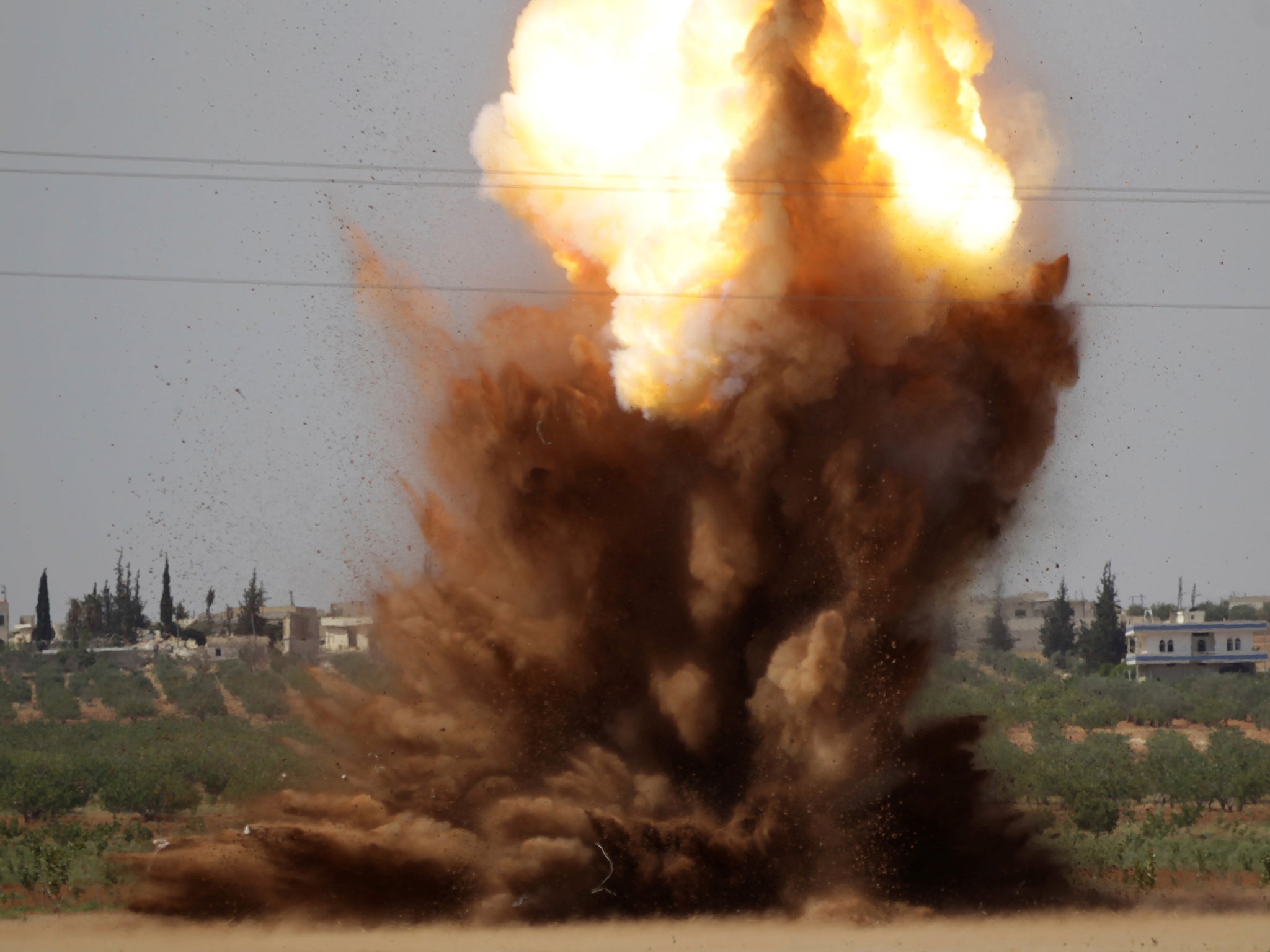The US State Department has deleted and archived its page on cluster bombs
Due to their extraordinary risk to civilians, they were banned in 2010 in an international treaty signed by more than 100 states but the US did not sign up to the convention

Your support helps us to tell the story
From reproductive rights to climate change to Big Tech, The Independent is on the ground when the story is developing. Whether it's investigating the financials of Elon Musk's pro-Trump PAC or producing our latest documentary, 'The A Word', which shines a light on the American women fighting for reproductive rights, we know how important it is to parse out the facts from the messaging.
At such a critical moment in US history, we need reporters on the ground. Your donation allows us to keep sending journalists to speak to both sides of the story.
The Independent is trusted by Americans across the entire political spectrum. And unlike many other quality news outlets, we choose not to lock Americans out of our reporting and analysis with paywalls. We believe quality journalism should be available to everyone, paid for by those who can afford it.
Your support makes all the difference.The page on “cluster munitions” on the US State Department’s website has been deleted and archived following Donald Trump’s inauguration.
It set out US policy on cluster bombs, an explosive weapon which releases small bomblets over a wider area.
Due to their extraordinary risk to civilians, cluster bombs were banned in 2010 in an international treaty signed by more than 100 states, including the UK.
The Convention on Cluster Munitions prohibits all use, stockpiling, production and transfer of cluster bombs but the US, along with Russia, China and Saudi Arabia are not signed up to the convention.
Advocacy Director for the arms division of Human Rights Watch, Mary Wareham, realised the page had disappeared from the State Department’s main website.
She tweeted a link to the page, which now displays a “We’re sorry, that page can’t be found” message and referred to a previous tweet from last February, which included a link and a screengrab of the page on the State Department's website.
The page, which can now be found on the State Department’s archive for the years 2001 to 2009, includes a number of policy documents and statement from UN meetings in Geneva between 2007 and 2008 referring to the US’ position on cluster munitions and concerns over the weapons’ “humanitarian impact”.
It read: “Cluster munitions have demonstrated military utility. Their elimination from US stockpiles would put the lives of its soldiers and those of its coalition partners at risk. The following documents describe the United States position on cluster munitions, which carefully balances humanitarian and legitimate military considerations.”
The full text of the Cluster Munitions policy adopted in 2008 has also been archived from the Defense Department’s website.
According to the 2008 policy, the military is expected to stop using cluster munitions altogether by 2018.
A spokesman from the State Department said the page has been archived following standard procedures for old material and had taken place in the same way for the Clinton, Bush and Obama administrations.
He said: “Content that remains on state.gov includes, but is not limited to, the functions and operations of the department information, Congressionally-mandated reports, e.g., TIP, HRR, and IRF, and collections of official documents, such as legal treaties and air transport agreements. New items created by the Trump Administration will be posted to state.gov.”
The State Department’s website continues to hold documents, which are much older than 2007 and date as far back as 2000.
A spokesman was unable to confirm whether the State Department would update its page on cluster munitions policy.
Join our commenting forum
Join thought-provoking conversations, follow other Independent readers and see their replies
Comments